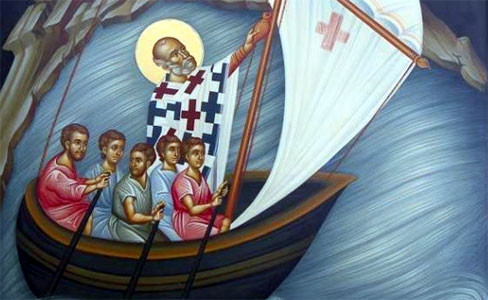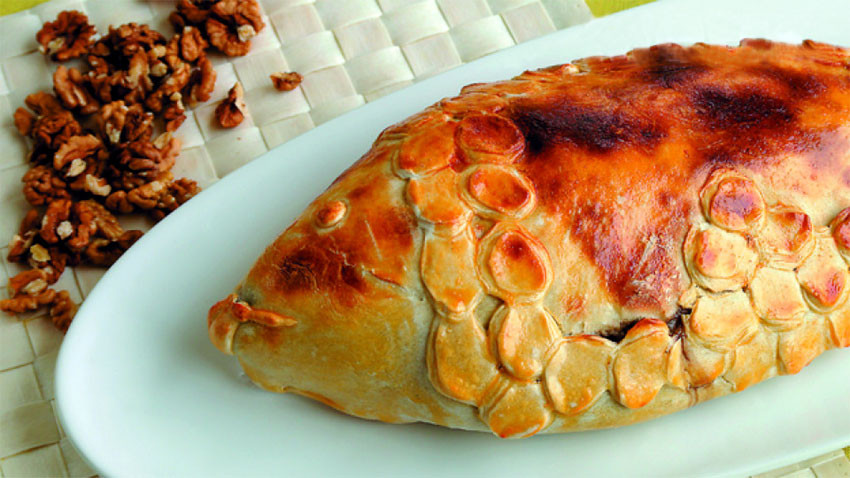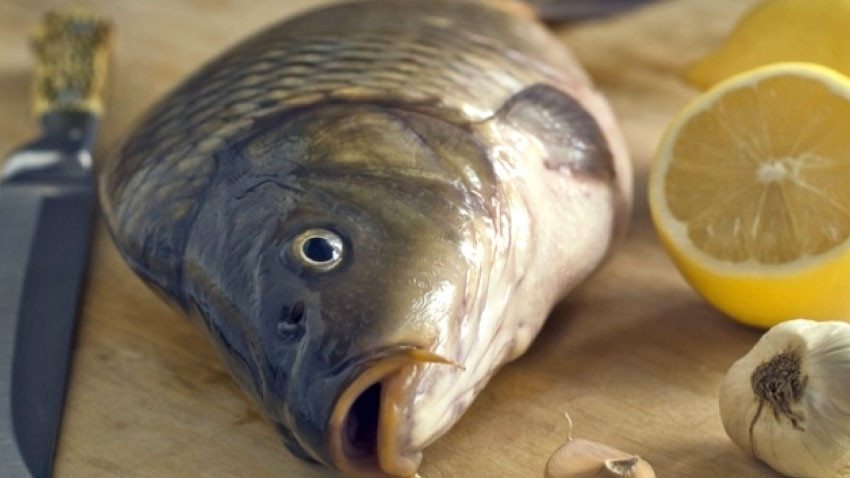Seafood is not a staple of the diet of Bulgarians, at least compared to our neghbours to the South – the Greeks. Still, tradition calls for fish to be put on the table on Nikulden, the day of St. Nicholas, 6 December, even though it coincides with the nativity fast.
“In Eastern Orthodoxy carp is a must on the table on Nikulden. According to legend, when God was dividing up the world among six saints, all of them brothers, St. Nicholas was given the seas and the oceans, and that made him master of all water,” says Boris Tasev from the culinary school Amuse Bouche.
 One time, when St. Nicholas went out to sea with his companions a violent storm came up and the boat got a leak. St. Nicholas started to pray, then he put his hands into the water and pulled out a carp. That is how the legend goes, even though carp is not a saltwater fish. St. Nicholas then used the carp to plug the leak. Then he and his companions all reached the shore and went home safe and sound. Because of this legend on this day fish is eaten. In fact, Nikulden is imbued with a great deal of symbolism. When we are cleaning the carp we have to be careful not to let the scales fall to the ground, because our family’s welfare shall fall with them. If we step on a scale we shall fall ill. It is a good idea to choose the biggest scale and tuck it away in our wallet, that way it will always be full of money.
One time, when St. Nicholas went out to sea with his companions a violent storm came up and the boat got a leak. St. Nicholas started to pray, then he put his hands into the water and pulled out a carp. That is how the legend goes, even though carp is not a saltwater fish. St. Nicholas then used the carp to plug the leak. Then he and his companions all reached the shore and went home safe and sound. Because of this legend on this day fish is eaten. In fact, Nikulden is imbued with a great deal of symbolism. When we are cleaning the carp we have to be careful not to let the scales fall to the ground, because our family’s welfare shall fall with them. If we step on a scale we shall fall ill. It is a good idea to choose the biggest scale and tuck it away in our wallet, that way it will always be full of money.
What do we need to put on the table on Nikulden?

“Traditionally - ribnik (derived from the word riba, fish). The fish is usually carp, stuffed with onions and walnuts, and wrapped in yeast dough and baked.” Boris says, but adds that he can recommend a different, more interesting recipe:
“I myself prefer to slice the carp into cutlets, cook them with lightly caramelized red onions, a dash of olive oil, and some walnuts. Put the caramelized onions into a baking dish with a little red wine and water, then put the carp on top and bake.”
 To make sure the carp is tasty and juicy, the first and most important thing is to choose fish that is fresh, and, if possible, from a clean water source. “Carp is a demersal fish, but when the water source is clean, there is no smell of mud,” says Boris Tasev. Another important thing is the cooking temperature and the cooking time. If we cook it too long it dries the meat. The different kinds of fish require different cooking temperatures, but inside the meat itself it has to reach 48 – 60 degrees C at most.
To make sure the carp is tasty and juicy, the first and most important thing is to choose fish that is fresh, and, if possible, from a clean water source. “Carp is a demersal fish, but when the water source is clean, there is no smell of mud,” says Boris Tasev. Another important thing is the cooking temperature and the cooking time. If we cook it too long it dries the meat. The different kinds of fish require different cooking temperatures, but inside the meat itself it has to reach 48 – 60 degrees C at most.
Besides carp, we can put on the table meatless stuffed peppers and cabbage leaves, maize, beans, wheat. And of course – ritual loaves of bread, decorated with figures connected with the sea and water, though that very much depends on our imagination and cooking skills. The bread is made differently in different parts of Bulgaria, one version being the so-called “immersed” flat loaf of bread:
“It is called “immersed” because it is left to rise inside water,” Boris Tasev explains. “After kneading the dough, wrap it and tie it up in cheesecloth and leave it in a pot full of water. Wait until the dough floats to the surface – that means it has risen.”

Another trick we should know when making the bread is that if we touch the dough, our finger should leave an imprint which then slowly returns to its original shape – that means the dough has risen. If the imprint remains, that means the dough is not ready. When you are sure the dough has risen, roll it out into a thin sheet and grease it. Then roll the sheet up, cut up into pieces and lay them side by side. That is the easiest kind of loaf, Boris says. For dessert – what better way to end the evening than a glass of red wine?
 For those with a sweet tooth there is a traditional wheat recipe that is really simple – boil and strain the wheat and add powdered sugar and walnuts.
For those with a sweet tooth there is a traditional wheat recipe that is really simple – boil and strain the wheat and add powdered sugar and walnuts.
Putting the final touches to the traditional symbolism – you should know that on Nikulden the table must not be cleared throughout the entire day. The fish bones must not be thrown away – they are either burned, or thrown into a river, a lake, the sea, or buried in the ground, otherwise it is said we shall be throwing away our health with the garbage. And the bone from the carp’s head which is cross-shaped was once sewn onto the hats of newborns to bring them health.
English: Milena Daynova
Photos: archiveBulgaria participates in the Global Money Week initiative for yet another year. Global Money Week is an annual global awareness-raising campaign to ensure that young people, from an early age, are financially aware, and are gradually acquiring the..
Bulgaria, as distant as a mirage, has become a beloved land for a man who has never set foot in this country. For nearly 50 years, Mr Jayanta Chakrabarti has been closely following everything that happens here and probably knows more about our history and..
The Republic of North Macedonia is in seven days of mourning. The town of Kočani, where a fire in a disco club took the lives of at least 59 people – mostly young people and children, aged 14 to 25 – is shrouded in silence today. "The..
Bulgaria, as distant as a mirage, has become a beloved land for a man who has never set foot in this country. For nearly 50 years, Mr Jayanta Chakrabarti..
Bulgaria participates in the Global Money Week initiative for yet another year. Global Money Week is an annual global awareness-raising campaign to..

+359 2 9336 661
